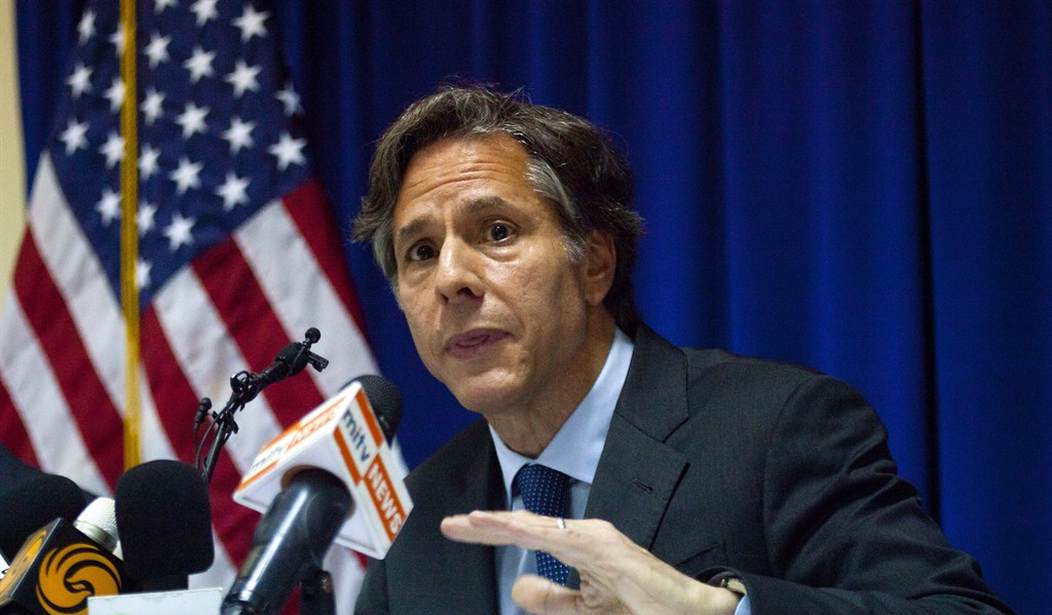According to a major exclusive in Tuesday’s Washington Post, before Russia invaded Ukraine, “U.S. intelligence community had penetrated multiple points of Russia’s political leadership, spying apparatus and military, from senior levels to the front lines, according to U.S. officials.” If so, we might add, how well did that work out for us?
This is how the Washington Post sets the scene.
On a sunny October morning, the nation’s top intelligence, military and diplomatic leaders filed into the Oval Office for an urgent meeting with President Biden. They arrived bearing a highly classified intelligence analysis, compiled from newly obtained satellite images, intercepted communications and human sources, that amounted to Russian President Vladimir Putin’s war plans for a full-scale invasion of Ukraine.
For months, Biden administration officials had watched warily as Putin massed tens of thousands of troops and lined up tanks and missiles along Ukraine’s borders. As summer waned, Jake Sullivan, the national security adviser, had focused on the increasing volume of intelligence related to Russia and Ukraine. He had set up the Oval Office meeting after his own thinking had gone from uncertainty about Russia’s intentions, to concern he was being too skeptical about the prospects of military action, to alarm.
The session was one of several meetings that officials had about Ukraine that autumn — sometimes gathering in smaller groups — but was notable for the detailed intelligence picture that was presented. Biden and Vice President Harris took their places in armchairs before the fireplace, while Secretary of State Antony Blinken, Defense Secretary Lloyd Austin and Gen. Mark A. Milley, chairman of the Joint Chiefs of Staff, joined the directors of national intelligence and the CIA on sofas around the coffee table.
Tasked by Sullivan with putting together a comprehensive overview of Russia’s intentions, they told Biden that the intelligence on Putin’s operational plans, added to ongoing deployments along the border with Ukraine, showed that all the pieces were now in place for a massive assault.
According to the Washington Post, we had it all. We knew the axes of advance, and we knew the sequencing of actions involving Russian airborne and special operations forces. Even so, Joey SoftServe was in a quandary because the #OrangeManBad had really fouled up things.
As he absorbed the briefing, Biden, who had taken office promising to keep the country out of new wars, was determined that Putin must either be deterred or confronted, and that the United States must not act alone. Yet NATO was far from unified on how to deal with Moscow, and U.S. credibility was weak. After a disastrous occupation of Iraq, the chaos that followed the U.S. withdrawal from Afghanistan, and four years of President Donald Trump seeking to undermine the alliance, it was far from certain that Biden could effectively lead a Western response to an expansionist Russia.
The Euros were skeptical of the intel and suspected the US was making it sound much more definitive than it was. On the other hand, the Ukrainians were afraid that reacting to intelligence in which they didn’t have 100% confidence could possibly precipitate a Russian invasion and would definitely hurt Ukraine’s economy.
The article is worth reading (my link is outside a paywall, so enjoy), if for nothing else, for the vignettes. For instance, any stereotypes you had about French President Macron and his collection of cucks will be validated.
Putin didn’t commit and appeared to have more-pressing matters at hand. “To be perfectly frank with you, I wanted to go [play] ice hockey, because right now I’m at the gym. But before starting my workout, let me assure you, I will first call my advisers.”
“Je vous remercie, Monsieur le President,” Putin concluded, thanking him in French.
Macron is heard laughing in delight as he hangs up. The French president and his advisers thought they had a breakthrough. Macron’s diplomatic adviser, Emmanuel Bonne, even danced.
If you were sure that Anthony Blinken represented the worst of what our elite establishments can produce, you will feel validated.
After again going over the Ukraine situation, Blinken stopped and asked, “Sergei, tell me what it is you’re really trying to do?” Was this all really about the security concerns Russia had raised again and again — about NATO’s “encroachment” toward Russia and a perceived military threat? Or was it about Putin’s almost theological belief that Ukraine was and always had been an integral part of Mother Russia?
Without answering, Lavrov opened the door and walked away, his staff trailing behind.
Factually, a lot of it rings false.
First and foremost, the idea that an allegedly professional grouping of intelligence agencies would claim to have penetrated the planning and communications of Russia’s government and military from the top to the bottom if they had done so strikes me as a quintessential violation of “sources and methods.” At a minimum, the Russians would change their communications systems and turn the FSB loose on planning staff to shut down US collection capabilities. But, on the other hand, if you didn’t penetrate their systems, claiming you did in a self-adulatory newspaper article is an excellent way to cause mischief.
Second, the intelligence community predicted an imminent invasion for a few weeks before the February 24 attack. They later claimed they did this to keep the Russians off balance. The Washington Post even ran an article headlined Why is the U.S. intelligence community so chatty about Russia? that questioned the wisdom of what the IC was doing; The Washington Post Throws Shade on a Major CNN ‘Scoop’ About Intercepted Russian Communications and Rightfully So. That article speculated, as I did a few weeks before (Why Today’s Austin-Milley Press Conference Convinces Me That Joe Biden Wants Conflict With Russia in Ukraine), that the Biden White House didn’t know if Russia intended to invade but wanted to raise the political cost of him not invading.
In short, what we have in this story is more myth-making by the intelligence community. I can’t be convinced that an intelligence community that failed to perceive the brittleness of the Afghan government when our analysts were co-located with Afghan intelligence units would be able to penetrate Russian decision-making processes so thoroughly. The record of our intelligence community going back some twenty years is mixed, at best, and could look a lot like abject incompetence in a critical light.
The best that the IC can claim is that it knew the Russians had the capability to invade; the claim that it was aware of Russia’s intentions is, I think, nonsense.
More articles are coming in this series; maybe we’ll end up with something that looks like evidence that the IC was able to produce something like a D-Day/H-hour prediction that would validate their claim to having been inside Russia’s planning cycle. I wouldn’t hold my breath, though.













Join the conversation as a VIP Member